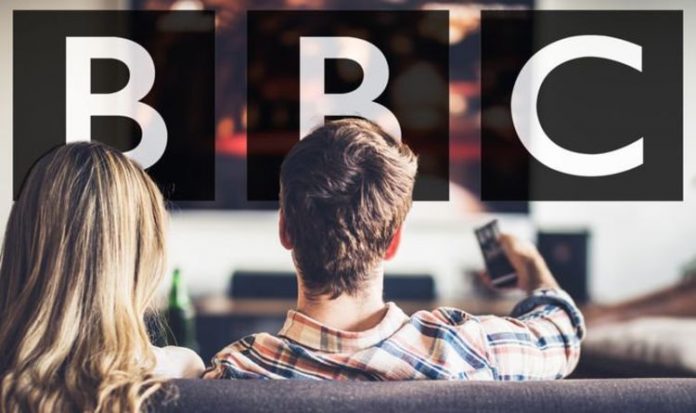Polling found that well over half (56 percent) of respondents would support getting rid of the licence fee and having the BBC switch to a subscription-based model. Fewer than one in five people (19 percent) were opposed to scrapping the licence fee, which now costs £157.50 a year. The findings have triggered new calls for the licence fee to be axed.
The polling of 1,700 people by Redfield & Wilton Strategies also reveals the widespread belief that the BBC has failed to be unbiased in its reporting.
Almost half of people (47 percent) said the BBC has failed to be impartial in its news coverage in recent years, while fewer than three out of 10 (28 percent) thought the it had succeeded.
The survey also uncovered strong support for a new news channel to provide an alternative to the BBC. A third of respondents (33 percent) agreed with the statement: “The BBC is not impartial and balanced, and there is a need for another news channel to offer a different perspective.”
The findings come as former BBC political presenter Andrew Neil prepares to launch GB News, a television channel which is planning to broadcast for 6,500 hours a year.
Support for a new channel is not limited to critics of the BBC. Nearly a quarter (24 percent) of people who said the BBC was impartial and unbiased agreed Britain needed a new source of television news.
The hostility to the licence fee and the erosion of trust in the BBC’s news coverage will make sobering reading for the new director-general of the BBC, Tim Davie. He has said he is prepared to fire staff who breach social media guidelines on impartiality.
A source at the Government’s department for digital, culture, media and sport (DCMS) said that “impartiality across output is a major challenge for the BBC,” adding:” The digital secretary has set that out repeatedly, and the new DG and chair have both recognised it is an issue needing their attention.”
Julian Knight, the Conservative chair of the DCMS select committee, commented: “This poll shows what an uphill battle [Tim Davie] has. It’s clear that many licence fee payers feel the BBC is out of touch with their lives.”
Former Welsh Secretary Alun Cairns said: “I have been concerned that the BBC has been losing the confidence of the public for some time and this survey seems to confirm it. There is the need for a cultural change and to represent and stand up for British interests.”
Shipley Conservative MP Philip Davies said there was a strong feeling the broadcaster had failed to provide impartial coverage of Brexit.
He said: “This poll shows that the days of the licence fee are numbered, and the sooner the BBC accepts that and embraces that the better for everyone. The BBC have ruined their reputation for impartiality, and are completely out of step and out of touch with huge swathes of the country.
“They have retreated into a metropolitan, London-centric, left wing, politically correct, virtue signalling, woke bubble and the public have clearly had enough.”
The highly influential Institute for Economic Affairs called for an end to the licence fee.
Spokeswoman Annabel Denham said: “There is no moral case for requiring people to fund the BBC if they have no interest in its services. The licence fee is anachronistic and fails to reflect viewing habits, particularly among younger audiences – many of whom watch far more Netflix or YouTube than the corporation’s content.
“It’s time for the BBC to realise that it needs to be funded by people who want to pay for and enjoy its services. One option would be to become a subscriber-owned mutual.
“This wouldn’t guarantee the elimination of real or perceived biases, but at least we’ll be able to choose whether to support it with our wallets.”
A BBC spokeswoman said: “Impartiality is the cornerstone of the BBC and polling routinely shows we are by far the most trusted provider of news in the UK. The licence fee continues to ensure the BBC is an independent, universal broadcaster, committed to serving all audiences and is the agreed method of funding until at least 2027.”
However, Rebecca Ryan of the Defund the BBC campaign said: “These figures show that the government’s live TV tax no longer has public support. The BBC does not meet its obligations to represent those who are forced to pay for it or to deliver impartial news coverage and programming.
“Our supporters want the BBC stand on its own two feet financially and seek out a global paying audience.”







